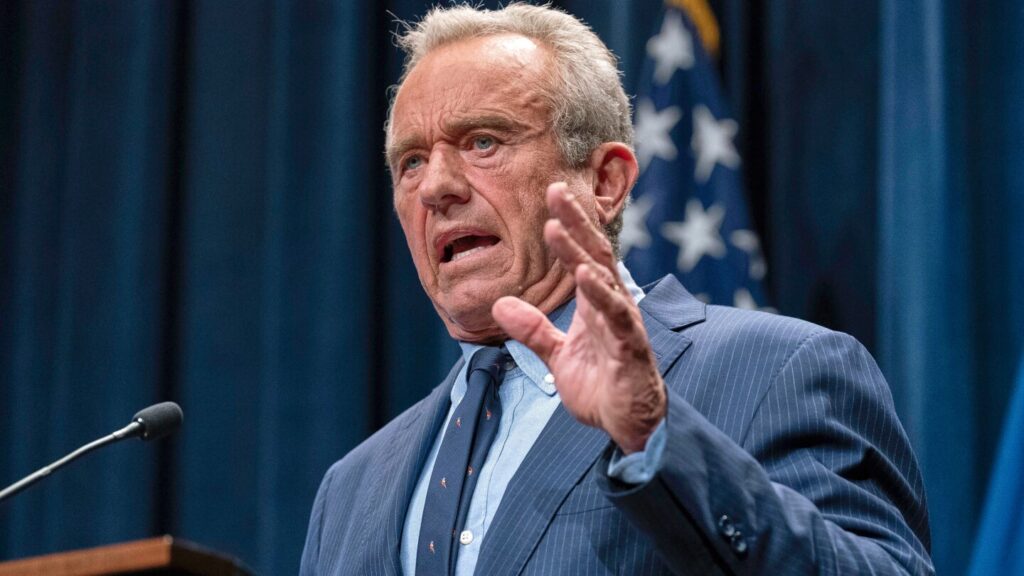
NEW YORK (AP) — A recent update to the Centers for Disease Control and Prevention’s (CDC) website has ignited a firestorm of controversy by contradicting the longstanding scientific consensus that vaccines do not cause autism. This change, made to the CDC’s “vaccine safety” webpage, states that the assertion “Vaccines do not cause autism” is not an evidence-based claim. The alteration has drawn sharp criticism from public health officials and autism experts.
The update, which occurred on Wednesday, is part of a broader initiative by the U.S. Department of Health and Human Services (HHS) to reassess established scientific positions on vaccine safety and other pharmaceutical products. This move has been met with outrage from scientists and advocates who have dedicated years to understanding the causes of autism.
Scientific Community Reacts
“We are appalled to find that the content on the CDC webpage ‘Autism and Vaccines’ has been changed and distorted, and is now filled with anti-vaccine rhetoric and outright lies about vaccines and autism,” stated the Autism Science Foundation in a press release issued Thursday. The scientific consensus, supported by decades of research, has consistently found no link between vaccines and autism.
Dr. Susan Kressly, president of the American Academy of Pediatrics, emphasized the clarity of this conclusion. “The conclusion is clear and unambiguous,” she said in a statement. “We call on the CDC to stop wasting government resources to amplify false claims that sow doubt in one of the best tools we have to keep children healthy and thriving: routine immunizations.”
Uncertainty and Internal Confusion
The CDC has historically supported the absence of a vaccine-autism link, promoting vaccines licensed by the Food and Drug Administration (FDA). However, anti-vaccine activists, including Robert F. Kennedy Jr., who recently became the Secretary of Health and Human Services, have long argued otherwise. The involvement of CDC officials in the website change remains unclear, leading to confusion within the agency.
Dr. Debra Houry, a former CDC official who resigned in August, expressed surprise at the update. “I spoke with several scientists at CDC yesterday and none were aware of this change in content,” she noted. “When scientists are cut out of scientific reviews, then inaccurate and ideologic information results.”
Official Responses and Political Implications
Despite the website’s new content, no new research is cited to support the claims. Instead, the page suggests that past studies indicating a possible link have been overlooked by health authorities. HHS spokesman Andrew Nixon stated, “HHS has launched a comprehensive assessment of the causes of autism, including investigations on plausible biologic mechanisms and potential causal links. Additionally, we are updating the CDC’s website to reflect gold standard, evidence-based science.”
Former CDC officials have voiced concerns about the reliability of the agency’s communications on vaccine safety. Dr. Daniel Jernigan, another former official, criticized the shift in approach, stating that Kennedy seems to be “going from evidence-based decision making to decision-based evidence making.”
U.S. Senator Bill Cassidy, a Louisiana Republican who played a key role in Kennedy’s confirmation, had initially expressed reservations about Kennedy’s nomination. However, he later supported Kennedy, who had pledged not to remove the assertion that vaccines do not cause autism from the CDC website. The updated site retains the headline “Vaccines do not cause autism,” albeit with an asterisk, and a note clarifying that this phrasing remains due to an agreement with the Senate Health Committee.
Looking Ahead
The changes to the CDC’s website have sparked widespread debate about the influence of political agendas on scientific communications. As the HHS conducts its assessment, the scientific community and the public await further clarification on the agency’s stance regarding vaccine safety. The controversy underscores the ongoing tension between established scientific consensus and emerging political influences.
While the CDC and HHS navigate this complex landscape, the implications for public trust in vaccines and health communications remain significant. As the discourse continues, the role of evidence-based science in public health policy is likely to be a focal point of future discussions.






